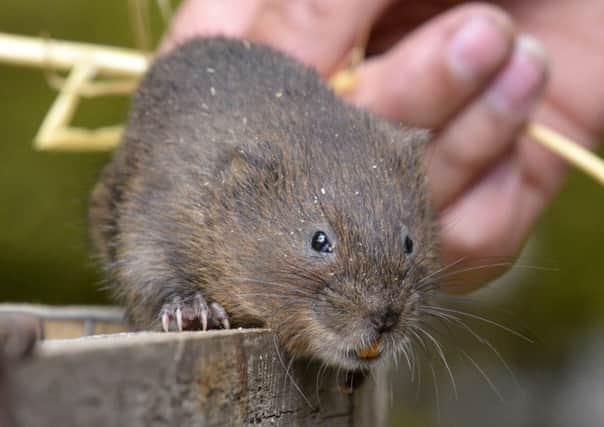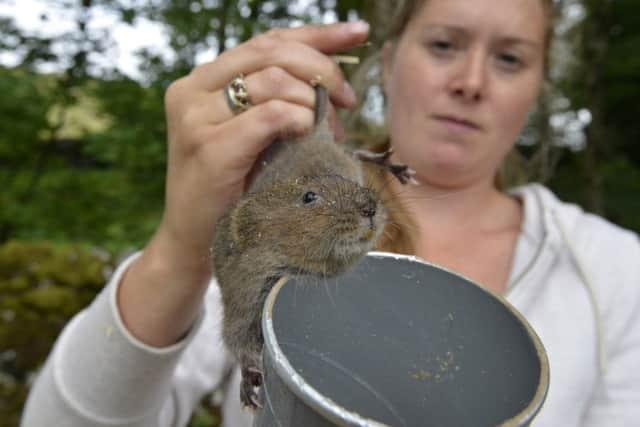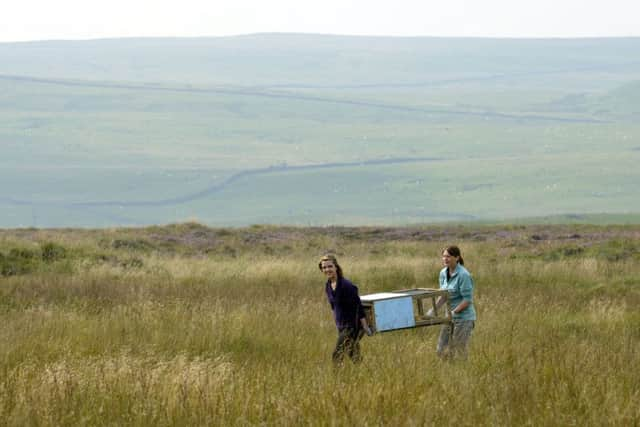Elusive water vole brought back to Yorkshire Dales tarn


But now, after months of careful planning, these tiny creatures are being brought back. And it is hoped they can thrive in the high waters of Malham Tarn.
“It’s really exciting, in particular for this area of the Yorkshire Dales,” said Helen Clarke from the National Trust in Yorkshire as 100 baby voles were released into the waters yesterday.
“Certainly they’ve not been spotted in the last 50 years.


Advertisement
Hide AdAdvertisement
Hide Ad“We’ve been working really hard to ensure the conditions are just right for them to survive.
“Hopefully they will start to breed, creating their own burrows so that they can get through the winter.”’
The water vole - still best known as the inspiration for the character Ratty in Kenneth Grahame’s Wind In The Willows - is Britain’s fastest declining wild mammal.
Ecologists for the National Trust believe Malham Tarn’s were wiped out in the 1960s by escaped mink, and they haven’t been seen since.


Advertisement
Hide AdAdvertisement
Hide Ad“To see they’re one of the most declining mammal, is quite a scary statistic,” said Miss Clarke. “Once, they were commonplace across the country. They are incredibly hard to spot, they are very elusive.”
The voles released into Malham Tarn are three months old, aged between eight and 12 weeks.
“They’re all quite cute, very chubby, round looking creatures,” said Miss Clarke.
“The voles we’re releasing have got northern bloodlines. They are bred from other northern voles, so they should be physically suited. They should be able to cope with northern winters.


“It’s amazing really, how quickly they adapt.
Advertisement
Hide AdAdvertisement
Hide Ad“It’s truly a wonderful sight to see them back in Yorkshire’s waters. It can only be good, not only for the survival of the species but also for nature in Yorkshire to have them back in the area.”
This new reintroduction programme, thought to be the biggest of its kind in Britain, is part of a major new vision for land management in the Yorkshire Dales National Park.
The National Trust says it will play an important role in providing space for rare mosses and liverworts which need patches of open habitat to grow and will be a food source for struggling predators like barn owls and otters.


Roisin Black, National Trust ranger at Malham Tarn, said: “In the rest of Europe, water voles are common. In Britain, the creatures are incredibly rare.
Advertisement
Hide AdAdvertisement
Hide Ad“We know water voles have thrived at Malham Tarn in the past and, thanks to work by the National Trust, the habitat here is perfect for water voles again.
“By reintroducing water voles to the Tarn, we hope to give these rare animals the chance to recolonise the streams in the high Yorkshire Dales.”
The animals, bred in captivity, have been released in the fen area of the tarn this year, with a further 100 voles due to be released in June 2017.
Peter Welsh, ecologist for the National Trust in the Yorkshire Dales, said: “Water voles once played an important part in the ecosystem at Malham Tarn.
Advertisement
Hide AdAdvertisement
Hide Ad“Reintroducing them to the tarn is just one of the ways we are working alongside our farmers and other partners to restore wildlife and natural processes in the Yorkshire Dales landscapes we care for.”